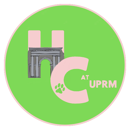Every year, the week of September 27 to October 3 commemorates Banned Books Week, an event created by the American Library Association (ALA) whose mission is to promote and “celebrate the freedom and expose the dangers of restricting access to books”. For the second consecutive year, EDSA, the English Department Student Association at UPRM, has striven to educate the student body about what it means for a book to be banned and why censorship should be relevant to everyone.
With its members, guest speakers, and audience, EDSA’s two-day events spawned conversations about censorship, banned books, and books’ far-reaching effects on readers. These conversations were laced with “controversial” (and relevant) topics like gender, sexuality, feminism and the impact of storytelling.
So, what exactly is a banned book?
(Photo credit: Claudia Irizarry)
Banned books could be defined as literary works that have been challenged by a person or group fiercely enough to be pulled from the shelves of places such as libraries, bookstores or, as is the case in many countries, your own home. Books are often banned because of so-called “inappropriate” content, portraying witchcraft, homosexuality, explicit sexuality, using offensive language, or because they are deemed “unsuitable” to a particular age group. Even popular and beloved books have been banned, like the Harry Potter series, The Perks of Being a Wallflower, Persepolis, The Great Gatsby, and even Shakespeare’s literary works, to name a few. In fact, most classic and contemporary famous books you can name belong to some list of banned or challenged books in some local public library or bookstore. Fourth-year English major Claudia Irizarry puts it candidly: “All my favorite books are banned.”
The events were held during the hora universal (Universal Hour) last Tuesday and Thursday at the English Department Language Lab in CH-126. There was a coming and going of students, all of which took their time to guess the books wrapped in brown paper, strewn across tables with key words on why they were banned. On Tuesday, September 29, Laura Garcia de Noceda, a first-year English Education graduate student, enlightened her audience on the history of banned books, opening the floor to conversations about the why’s and how’s of the process of challenging and banning books. She highlighted that people have a fundamental right to read literature, and that banning books violates this right.
There was a mug shot set up at the activity where students and professors—the felons—got their pictures taken for committing the “treacherous” act of reading these forbidden books.
(Photo credit: Claudia Irizarry)
Among Tuesday’s activities was also an interactive trivia game in which the participants had to listen to a banned book’s description and search the room for the book based on the hints written on its cover.
On Thursday October 1, Gabriel Acevedo, another English Education graduate, gave a multi-faceted, interactive talk titled “Exploring the Other Within Through Children’s Banned Books”. His goal was to have the audience “evaluate and present alternative strategies to present them to teachers, parents and students in order to promote tolerance and understanding to gender issues in society.”
The air was ripe for discussion and within moments ideas were being exchanged and built upon between the presenter and the audience. The students were surprised to hear that some children’s books on adoption and same-sex couples were banned on the premise of “not promoting family values.”
Acevedo asked the audience to think about what makes the act of banning books important. One student suggested lack of representation: “A lot of people can’t find their stories in books just because they’re untraditional,” they said. Another student added that “[banning books] perpetuates the ‘taboo’ of subjects that should be talked about.”
Afterwards, Acevedo had participants write a short essay describing how gender and “complicated” subjects were handled in their schools. The goal was to address how the widespread taboos on these subjects could be eradicated. To finalize the event, the students read the most frequently banned children’s books, like And Tango Makes Three, a story about two male penguins who adopt a baby penguin who hatched under their care. Students were challenged to share how they would convince parents and teachers to remove the ban on those books.
(Photo credit: Dalina Aimee)
This workshop inspired its participants to think about how dangerous it is to censor “controversial” topics just because some view them as uncomfortable or even disturbing. Censorship stunts the intellectual growth of society, and prevents people from examining their worlds through other perspectives than what their culture and society has taught them. It endangers everyone.
In the words of Noam Chomsky, “If we don’t believe in the freedom of expression of people we despise, we don’t believe in freedom of expression at all”.
Now, go pick up a book and exercise your right to knowledge!


